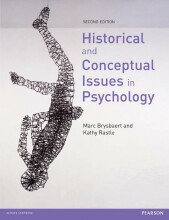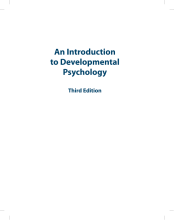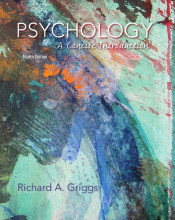Psychology and society
19 important questions on Psychology and society
What were the views on mental disorders in the past?
- Depressed individuals suffer from an excess of black bile
- People who hear voices are possessed
- Women become hysteric because their womb starts traveling through their body
How did clinical psychology develop from the bizarre views of mental disorders in the past?
- Neurosis: unconscious conflicts express themselves in symptomatology
- In WW-I Shell shock becomes important: soldiers develop PTSD-like symptomatology partly as a result of trauma
What is the result of the new view of mental disorders to be seen as medical disorders?
- Psychiatry develops as a branch of medicine
- People discover that certain drugs can be effective treatments (e.g. lithium for psychosis)
- This fits with a strongly medical view of mental disorders
- Higher grades + faster learning
- Never study anything twice
- 100% sure, 100% understanding
On the other hand a psychological view of mental disorders arose, how did this come about?
- Carl Rogers introduces humanistic psychology
- Unconditional acceptance of patients
- Therapist treats by listening as much as by talking
- This fits with a strongly psychological view of mental disorders
Next to the humanistic theory, another psychological view of mental disorders was discovered by aaron beck, what was this?
- this view characterized a disorder as patterns of interactions between affect, cognition, and behavior
- with this view brain malfunction is not implemented in the mental disorder
Besides their differences, what do psychiatric/medical and psychological views of mental disorders share?
- Despite their differences, psychological and psychiatric views of mental disorders share a very important ingredient
- They see mental disorders as a part of the natural world that can be systematically studied and understood
- No more witches or black bile!
Naturalization is a continuum, on one end is the bizarre view on mental disorders, what is on the other end?
- Thesis: people don’t suffer from mental disorders, but merely deviate from a norm. Maybe the norm is crazy, and society should adapt rather than “patients"
Describe the rosenhan study
- 8 pseudopatients get themselves admitted into psychiatric hospitals
- They say they hear voices saying ‘empty’ and ‘hollow’, but present no other symptoms
- 7 out of 8 received the diagnosis ‘schizophrenia’... And the pseudopatients spent 7 to 52 days in the institution
- Rosenhan: “We cannot distinguish the sane from the insane in psychiatric hospitals”
While antipsychiatry is gone, there is still a lot of criticism on the medical view of psychological disorders what is a way this is shown?
- we see a sharp increases of medication for depression. It is argued that evidence for effectiveness does not justify this increase.
- Our conception of disorders like depression has radically medicalized, increasing prevalence indicates a change in society rather than in people
What is the current status of the view on mental disorders?
- Psychiatry and clinical psychology have naturalized and demystified mental disorders
- This is largely a fortunate development, that has led to more humane treatment
- The question of how far naturalization should go is complicated
- The question of how the mental and the physical related is open
One of the most known interaction of science and sociaty is the psychological test, describe its origin.
- Binet attempts to assess children’s level of intelligence
- Instead of assessing basic psychological function like Galton (e.g. response time), he lets children solve problem, he counts the number of correct responses and takes that as an indication of intelligence
- This is roughly how we still do it today
- The psychological test is an instrument that probes a person. The person’s response is used to infer a psychological state or attribute
Binet's invention of the psychological test causes another important invention to happen, which was it?
- The invention of psychometrics
- The psychometric core of Binet’s approach is the total score
- Psychometric theory has developed ways to assess the quality of the total score as a measure of psychological attributes and delivers concepts like
- Reliability
- Validity
- Bias
- Random measurement error
The invention of the psychological tests and psychometrics brought a societal change about. How did these inventions influence society?
- Now that it is clear that people are measureable, a whole new way of thinking about things like equal rights etc can be practiced.
- In the 20th century, evidence accumulates that test scores are more reliable and less biased than teacher judgments
- it became a popular way of thinking to judge people on their abilities instead of their social status
What does psychological testing have to do with power?
- Psychological tests legitimize exercising power
- Educational tests stand in the service of meritocracy; discriminating people based on their abilities
- In our society, discriminating on the basis of race or gender is unacceptable
- However, discriminating on the basis of ability is seen as just
- this is how strongly influenced society is by the psychological test, it is now a legitimate way to exercise power over people
Next to generating new knowledge about the human mind and behavior, what is another important task of psychology?
- An important contribution of ‘dry’ empirical psychology was to debunk all kinds of nonsense
- In the time scientific psychology surfaced, people believed in many things we now consider bizarre
What is the current status on the fight against nonsense?
- Systematic empirical psychology has led to skepticism regarding adventurous claims
- The scientific literature shows that psychological research should interpreted with care
- The position of skepticism has to be balanced, however, because there is a lot of research that’s solid as well
- replication of psychological research is of essence to filter out more nonsense
How is multiple personality disorder a good example of how society feeds back into scientific psychology and the other way around?
- The concept of multiple personalities first surfaces in 19th century studies in hypnosis People appeared to show “secondary personalities”
- This idea becomes popular in theatre and film. Though we also see it in real life.
- In 1980, 200 cases have been documented in total, then between 1980 and 1990, 20.000 new cases are recorded
- The number of new cases increases suddenly and considerably due to people maybe including the possibility of having this in their self-concept
- Science follows suit, as the cases increase the amount of studies on this disorder also increase drastically.
- science and culture constantly interact
What can we learn from an interaction of science and culture as shown with multiple personality disorder?
- Psychology is not a static science, it changes with the culture as the culture changes with the science
- Phenomena in natural sciences don't change when our concept or perception of it changes. Psychological concepts do.
- When a chlorine molecule is diagnosed as such, it doesn't change
- when a person is diagnosed with depression, their self image changes. The way people conceptualize this person changes.
How are mental disorders another example of psychology used for power?
- Because scientific categories order society, they are political as well
- Mental disorders do legitimize exercising power and have often done so in the past
- for example; drapetomania; mental disorder that caused slaves to run away
The question on the page originate from the summary of the following study material:
- A unique study and practice tool
- Never study anything twice again
- Get the grades you hope for
- 100% sure, 100% understanding
































